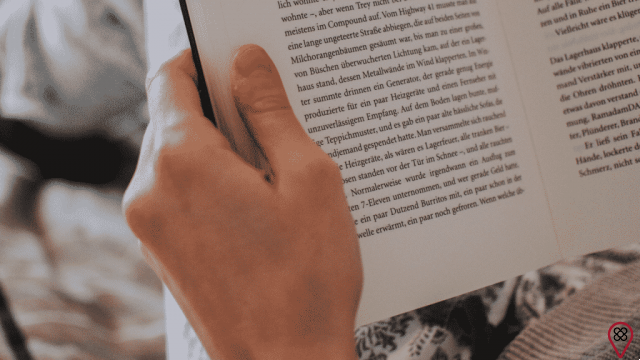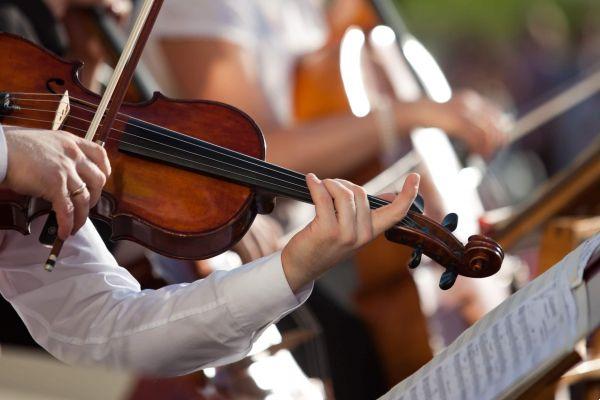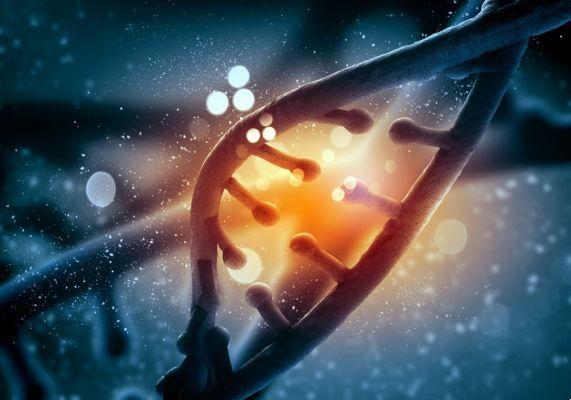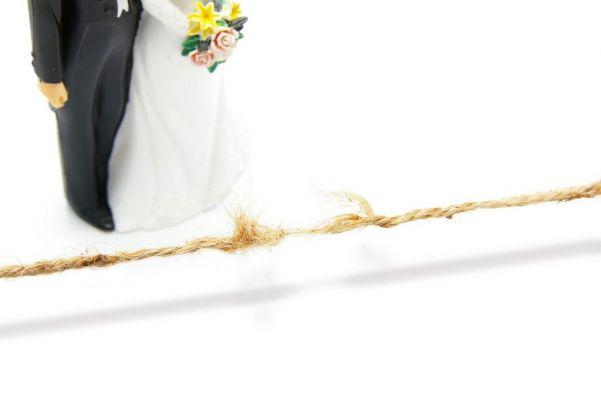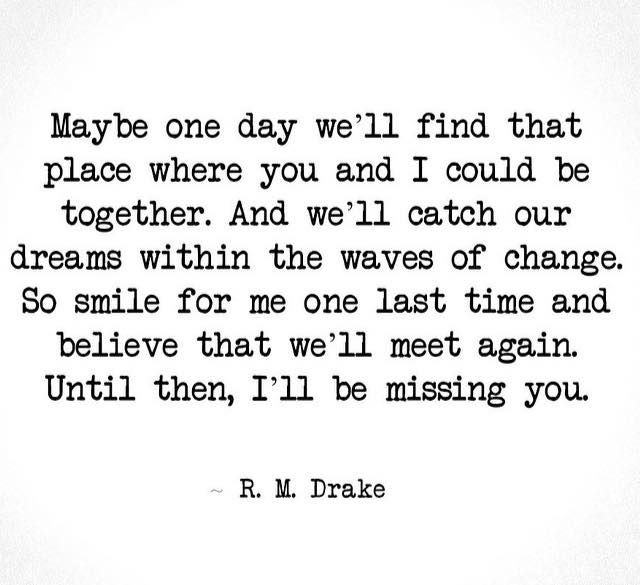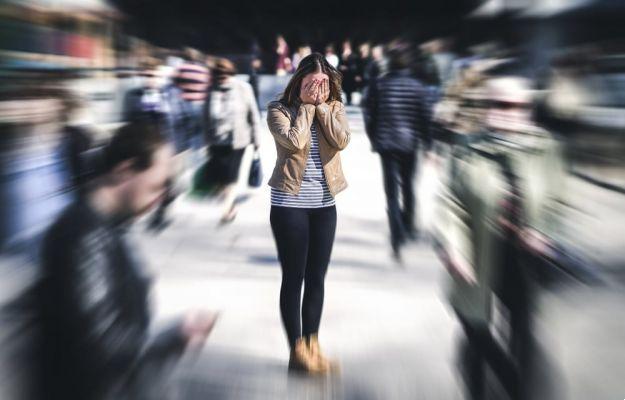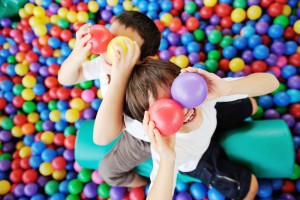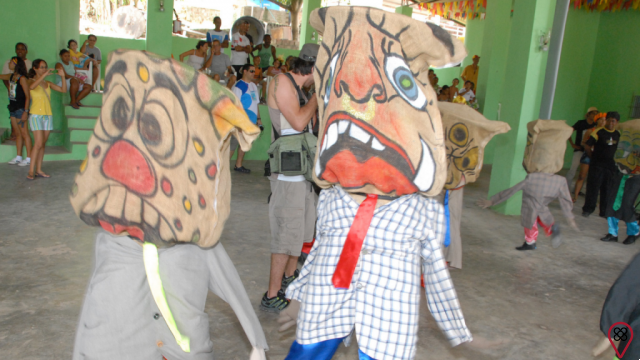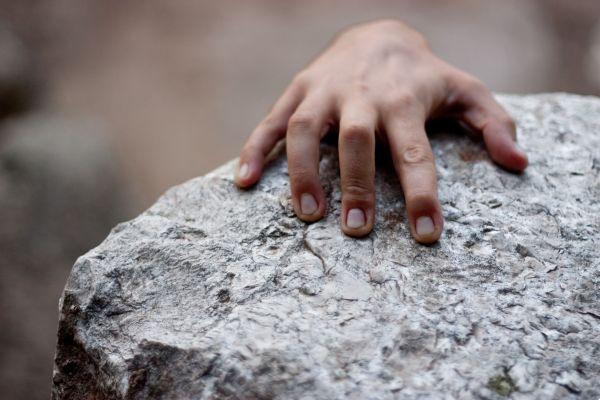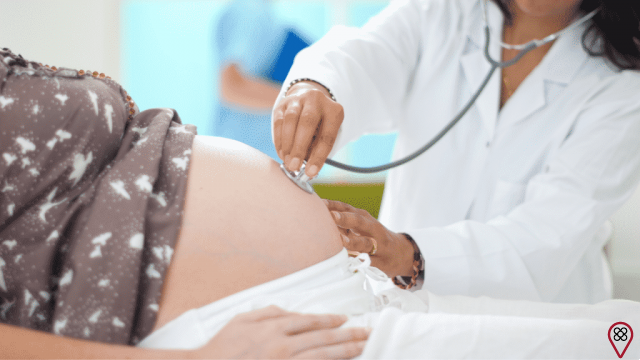“Go to your room and wait for me there” or “When I get home, we'll talk”. Anyone who heard one of these phrases when they were little knows very well what usually happened at the moment of such “conversation”: spankings, belt beatings and many other objects.
Only those who suffered physical punishment in childhood and adolescence know how much they hurt not only physically, but also emotionally, and can even destroy a psychological structure in formation.
In 2021, The Lancet published a review of 69 studies done in several countries – the United States, Canada, China, Colombia, Greece, Japan, Switzerland, Turkey and England – showed that there is no clear evidence that physical punishment improves the behavior of children, as well as increasing levels of “aggressiveness, antisocial and disruptive behavior at school” among those who are spanked.
Despite studies, physical punishment was still quite common in España until recently. A 2010 survey showed 54% of Spanish parents were against passing the law that prohibited physical punishment. Only 36% were against hitting their children.
Why does this keep happening then? Let's understand as well as explore the consequences for children who suffered this abuse growing up.
Culture of physical and psychological punishment
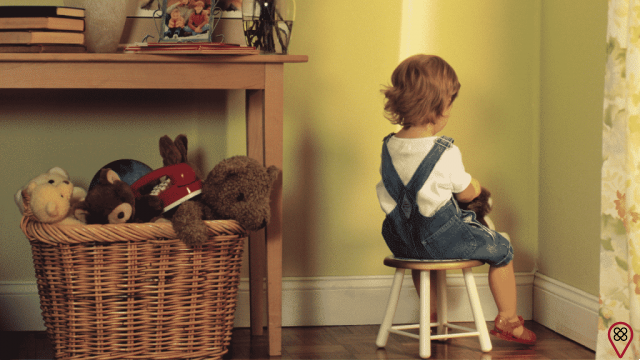
“Honor your father and your mother, that your days may be long on the earth, which the Lord your God gives you”, says the 5th of the 10 commandments of the Bible. This article is not about religion, but it is impossible to talk about Western culture without mentioning, of course, Christianity, which is the basis of our common behavior.
This Bible verse demonstrates well how parents are seen in our society: as “sacred”, superior beings, whose conduct and behavior cannot be questioned.
When they raise their children in this climate that their lines are orders, any slight misconduct is seen as punishable. Then the parents abandon their role of educating and assume the role of punishing the child. And these two roles are very different. Want an example?
Suppose you are doing something wrong in your work. What would work better: your boss walks up to you and yells, “You're dumb! You don't do anything right! It is forbidden to talk to colleagues!” or approach and say, “Look, it's not quite like that, it's like this. Do you need help executing?”.
Now amplify this many, many times, considering that the child is still forming his emotional and psychological structure and therefore is much more sensitive to all stimuli, compared to an adult.
Culture change
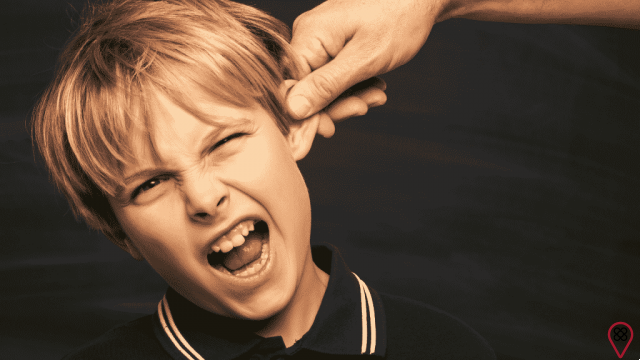
With the advancement of Psychology and the expansion of studies on human behavior, the myth that punishment with physical and psychological violence works was falling apart. Although the studies are important, the simple example given in the last topic is enough to understand that aggression doesn't help, right?
Culture changes take time, sometimes decades, but the need to build a less aggressive, repressed and frightened society is urgent. That's why turning child aggression into a crime is a big step towards a less violent education.
In Spain, since 2014, a law known as the Spanking Law has been in force, which “establishes the right of children and adolescents to be educated and cared for without the use of physical punishment or cruel or degrading treatment”. In other words, from now on, educating a child with violence is not just bad, it's a crime!
Why do some parents turn to violence?
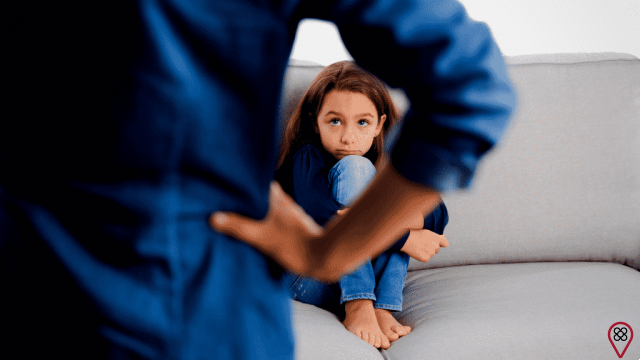
The reasons that lead a person to practice physical or verbal violence against another are many. They are defined based on the education one has received, the social context in which one lives and even the state of consciousness in which one finds herself.
It is not possible to say that a family member hit a child for a certain reason without knowing it, but we can analyze some of the factors that lead to this. It is important to emphasize that none of them should serve as a justification for attacking the little ones, but they should be worked with psychological help.
Growing up in a context of violence, having received physical punishment from parents during childhood and ingesting alcohol and other drugs constantly and excessively, for example, can result in aggressive behavior towards children. In addition, incomprehension, impatience and a sense of ownership over children are determinants of this habit.
Under no circumstances can we say that the child is to blame for the aggression. No matter how big a mistake she has made, nothing should be reprimanded with a slap, a shimmy, or name-calling. This is because young people, like adults, are in a constant learning process.
Vicious circle of violence
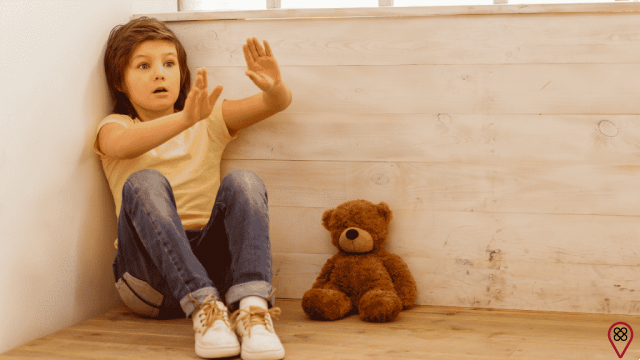
Assaulting a child is the initial stage of a vicious cycle of violence. This is because children are very educated through example. When parents teach that, with slaps and other physical aggression, as well as shouting and insults, it is possible to “convince” someone, the child will learn violence.
And this will be reflected throughout her life, making the chances of her becoming an aggressive adult great. When, instead, parents give light reprimands and encourage dialogue with the child, arguing and convincing him about what is right, they develop patience and communication in him.
In other words, a child who grew up in the midst of fear, being convinced “by slaps”, not with reason, logic and dialogue, will reproduce this behavior in adult life, convincing others “by slaps” too, instead of exercising patience and the communication.
Children feel guilty about violence
One of the main consequences of violence committed by parents is that children are, little by little, associating aggression with a feeling of guilt, mainly because parents always insist on saying: “You were beaten because you deserved it” or “Don’t do that and you won't need to be beaten."
For the child, therefore, he deserves the aggressions. This is bad for self-esteem, because it gets a person used to thinking that it's ok to be assaulted, violated and disrespected, since she really deserved it, it was her fault for having been assaulted, not the aggressor's.
Shy, frightened and withdrawn. This is how children who are often beaten live, because they start to live in fear, believing that anything they do will get them beaten, and the worst: they will think they have deserved it. This creates trauma and wounds that can take a lifetime to heal.
consequences of violence
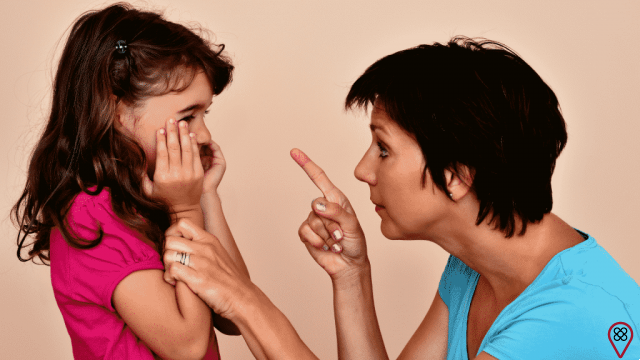
This life driven by fear, guilt and low self-esteem can have very serious consequences in a child's life. It is common for battered children to develop psychological disorders such as depression, anxiety disorder and panic disorder.
In addition to the disorders, adults who were abused in childhood may present a series of disabling behaviors or that interfere with their lives, such as a tendency to get involved with people who dominate them due to fear and difficulty in making decisions, because of the fear of suffering the consequences. from them.
Often years and years of psychotherapy and even psychiatric treatment are needed to deal with the trauma caused by abusive parents. That is why education through affection, dialogue and understanding is always the best option.
Physical punishment and development of psychological disorders
Contrary to what family members who abuse children imagine, violence is not a teaching or education tool. In fact, it is a tool of repression, which can harm an individual's physical integrity and mental health.
Depending on the force applied when slapping, slapping or slapping, for example, the child, who is still developing, may have bruises, body aches and, in more severe cases, broken bones or sprains. These consequences will arise at the same time as the aggression.
On the other hand, the development of psychological disorders can be slow, being fully noticeable only in adolescence or adulthood. Some of these disorders include anxiety, depression, low self-esteem, negative performance at school and work, constant seeking approval from others, reproducing violent behavior, and difficulty living in society.
You may also like
- Learn about the differences between boundaries, punishments, and authority
- Check out how to strengthen the bond between parents and their sons and daughters!
- Reflect on how love is able to transform children's brains!
- Happy child, singing adult: pay attention to the importance of happiness in childhood!
- After all, is hitting educational?
- Transform yourself with Nonviolent Communication
This type of trauma can be hidden for a while, but when the child grows up, he is likely to remember what the real cause of the unexplained injuries was. Or, through therapy, she may identify that her family members are behind the problems that consume her mental health.
Many parents, even today, associate violence with education, when, in fact, what violence does is raise a child without adequate preparation to deal with their aggression and the fear and trauma generated by aggression. Educate with love and affection! And, if you had abusive parents, don't blame yourself even more! Seek the help of a therapist to get out of it. And you will leave!



